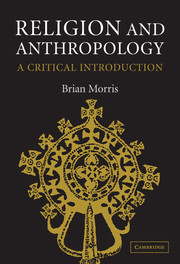Book contents
- Frontmatter
- Contents
- Preface
- Introduction
- 1 Shamanism
- 2 Buddhism and Spirit-Cults
- 3 Islam and Popular Religion
- 4 Hinduism and New Religious Movements
- 5 Christianity and Religion in Africa
- 6 African-American Religions
- 7 Religions in Melanesia
- 8 Neopaganism and the New Age Movement
- Conclusions
- References
- Index
5 - Christianity and Religion in Africa
Published online by Cambridge University Press: 29 March 2011
- Frontmatter
- Contents
- Preface
- Introduction
- 1 Shamanism
- 2 Buddhism and Spirit-Cults
- 3 Islam and Popular Religion
- 4 Hinduism and New Religious Movements
- 5 Christianity and Religion in Africa
- 6 African-American Religions
- 7 Religions in Melanesia
- 8 Neopaganism and the New Age Movement
- Conclusions
- References
- Index
Summary
THE CHRISTIAN TRADITION
Christianity is reputed to be the largest of the world's religions and is found, in one form or another, throughout the world. It is estimated that around thirty-two per cent of the world's population is Christians – around 2 billion people, half of whom are adherents of the Roman Catholic faith. Still an important influence in Western Europe and North America, Christianity has always had a strong missionary impetus and since the sixteenth century has spread throughout much of what is now described as the ‘developing’ world – Asia, Latin America, Africa, and Oceania. Christianity has thus been closely implicated in both the rise and the spread of capitalism and in the ‘colonial encounter’ itself. Although Christianity is claimed as a transcendental truth of universal significance, it has been communicated in diverse historical and socio-cultural contexts and has thus given rise to a bewildering number of different denominations, sects, churches, and movements. Besides the Roman Catholic Church and the Eastern Orthodox Church (which has more than 200 million adherents), and such established Christian churches as the Anglican, Methodist, Apostolic, Lutheran, and Baptist churches, there exist throughout the world many thousands of different independent Christian churches. With the resurgence of charismatic and pentecostalist forms of Christianity, there has been, in recent decades, a huge expansion of Christianity in many parts of Africa, Asia, and Latin America – as we shall later note.
- Type
- Chapter
- Information
- Religion and AnthropologyA Critical Introduction, pp. 146 - 187Publisher: Cambridge University PressPrint publication year: 2005



